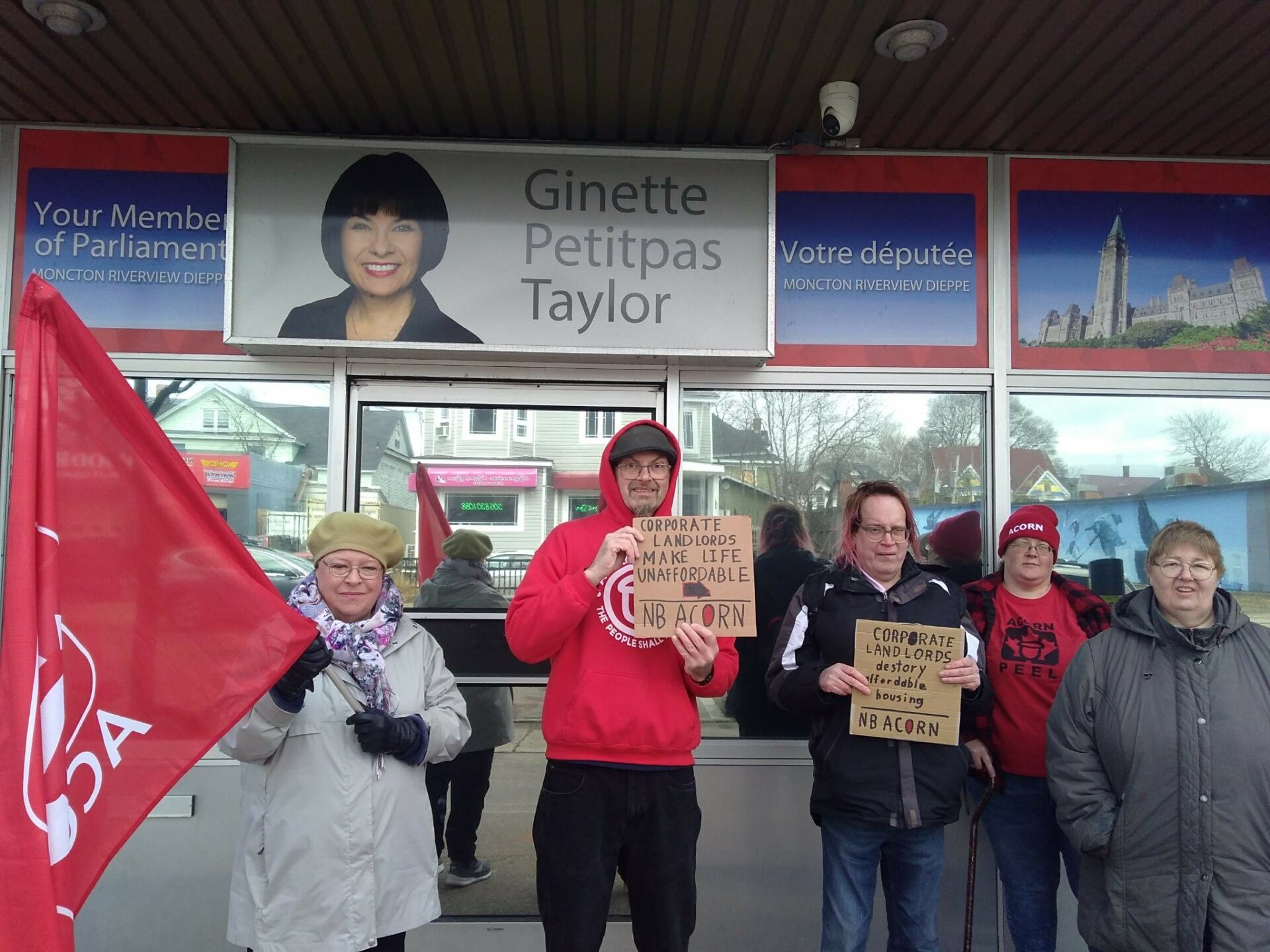Telegraph-Journal: “Things are not getting done or fixed”
Posted April 14, 2023
Members of Moncton’s chapter of ACORN gathered in downtown Moncton on Wednesday to call out the impact corporate landlords are having on the country’s stock of affordable housing.
Members of a tenant advocacy group rallied in downtown Moncton on Wednesday to ask a question they say is becoming more common in the city: Who is my landlord?
According to a recent housing survey conducted by ACORN, 63 per cent of Canadian tenants said it was impossible for them to find out who their landlord actually is.
Vanessa Jones, co-chair of ACORN NB, said this is because buildings are being bought up by corporate landlords or real estate investment trusts, who hire a property management company as a go-between.
Jones said it has led to more tenants coming to the group with complaints about maintenance issues they say are going unresolved.
“Things are not getting done or fixed,” she said.
Co-chair Peter Jongeneelen said corporate landlords are becoming more common in Moncton and across the country.
“What we are seeing happen with ACORN nationally is older buildings that used to be affordable housing are being sold,” he said. “When these buildings are bought the rents are always being raised.”
Last summer, the majority of tenants were evicted from a 16-unit building on King Street in Sackville that was purchased by real estate investment firm Sunset Investments.
At the time, one family living in the building told the Times & Transcript they were paying $775 per month for their unit.
The building went under renovations to add a third bedroom to the units. The units are now listed on K2 Property Management’s website for $1,875 per month including utilities.
ACORN’s action in Moncton was one of 10 taking place across Canada to call for the federal government to mandate disclosure of property ownership across all provinces, put a stop to financialized and big corporate landlords buying more affordable housing by settings limits to how many buildings they can acquire, and cracking down on tax exemptions for real estate investment trusts.
The group’s calls to action also included a request that Canada Mortgage and Housing Corporation (CMHC) supplement the National Housing Strategy’s Co-Investment Fund with an acquisitions fund that would enable non-profit, co-op and land trust organizations to purchase at-risk rental buildings when they come on the market and that any CMHC backed financing or federal funding to corporate landlords should be tied to a no displacement guarantee.
The group says Ottawa should also support the building of 1.2 million units of affordable housing in the next decade.
“We’re seeing that the housing is disappearing faster than it is being built,” Jongeneelen said.
****
Article by Payge Woodard for Times & Transcript

